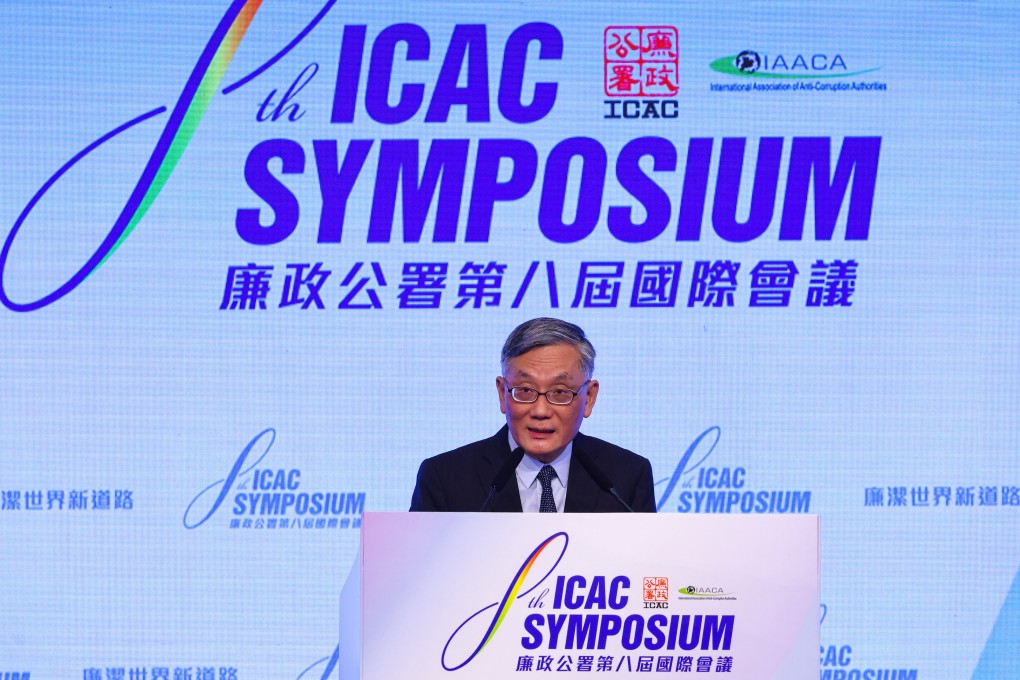Strong core values just as vital as law enforcement in anti-corruption fight, Hong Kong’s top judge says, as ICAC expands international work
- Chief Justice Andrew Cheung says public education has been key to success of city’s anti-graft agency
- ICAC marks 50th anniversary by signing memorandum of understanding with UN Office on Drugs and Crime and four countries during three-day summit

Chief Justice Andrew Cheung Kui-nung said on Wednesday that not all behaviour that involved corruption could be considered a crime, but the insidious nature of such actions harmed the rule of law “beyond measure”.
“It may not be possible to write all permutations of corruption into the law, and … not all forms of corruption may be criminal offences, Cheung said.
“Corruption should still be opposed as its prevention inspires faith in the rule of law and vice versa.”
The judge was speaking at a three-day symposium organised by the Independent Commission Against Corruption (ICAC) to mark its 50th anniversary.
More than 500 anti-graft officers, judges, prosecutors, regulators and academics from 60 jurisdictions spanning six continents attended the conference, designed to tackle the global challenges and refine strategies to combat corruption.
Cheung highlighted the ICAC’s work to change public attitudes towards rampant corruption in the city in the 1970s, saying the agency’s success was due to its public education promoting core values drawn up to prevent unfair advantages from being obtained.
